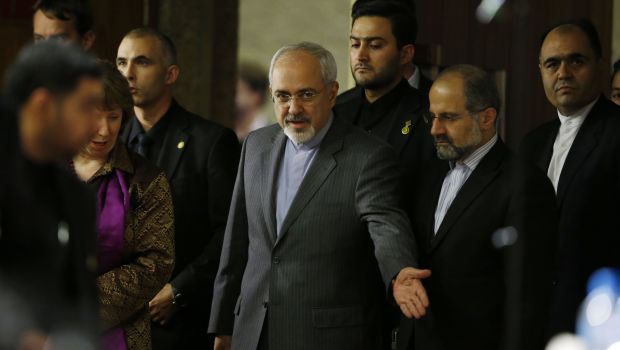The Geneva marathon ended with foreign ministers of the P5+1 group of world powers announcing a nuclear deal with Iran. The presence of the ministers at the InterContinental Hotel in the Swiss city was indicative of an imminent deal. The group was reported to have reached 90 percent of its objectives and the talks were going on about the remaining 10 percent.
An agreement was predicted to occur. Six months may still be needed before the problems are resolved, but the agreement is a primary step which provides a positive atmosphere in view of an effective outcome.
A favorable atmosphere dominated talks in Geneva, signaling a hopeful and positive result. Such a change is an important measure which may not end in an accord, but will definitely lead to entente.
During the last round of talks, Israeli Prime Minister Benjamin Netanyahu posed obstacles through the French government. Despite its significant achievements, the previous round of talks was adjourned after French Foreign Minister Laurent Fabius killed a possible deal.
But this time, US Secretary of State John Kerry, Fabius as well as Russian Foreign Minister Sergey Lavrov held talks together in a bid to prepare the grounds for an accord. They were trying to convince one another to tone down their rhetoric. These efforts contributed greatly to the final deal.
Meanwhile, US President Barack Obama has frequently said that Iran is entitled to enrich uranium for peaceful purposes.
All these stances promised a sort of entente and accord during this round of talks.
The agreement was finally reached at a time when Iran is facing tough economic conditions. The international community’s mobilization had put the country in such a tough position that it would have faced even more damaging consequences had it not joined diplomatic talks.
After the agreement was reached, numerous reactions came from inside and outside the country. Regardless of its economic, social and psychological reflections, this agreement shows that Iran is still at the beginning of the road. The advantages of this agreement will be first seen in the economy. Then, social impacts will be seen. The agreement will also significantly affect the country’s political atmosphere.
The new administration, which came to office with 18 million votes more than its nearest rival, was determined to change the political conditions and provide a more open atmosphere in society under tight security. All expectations from the new administration were not met, but the agreement reached in Geneva will positively affect economic, social and to some extent political domains.
Iranian Foreign Minister Mohamad Javad Zarif politely and diplomatically spoke about win-win talks. Throughout the four days of negotiations, we saw that the Americans also reached their objectives. Despite repeating that all options were on the table, they regularly insisted on diplomatic dialogue.
Now, we have to be careful regarding the behavior and performance of hardliners in Iran and abroad. Unfortunately, extremists always pursue their factional interests. On the second day of talks, Israel and hawks in the White House and the US Senate raised the idea of tougher sanctions. But they are now obliged to move within the framework of this agreement so that nobody will veer off the diplomatic path. Iranian hardliners, devoid of any global perspective, will move ahead with their harsh reactions and criticisms, but these reactions depend on the performance of senior officials. The messages sent by Iran’s Supreme Leader Ayatollah Ali Khamenei and President Hassan Rouhani following the signing of the agreement show their satisfaction with Iran’s diplomatic system.
We have to take into account the fact that we are currently in a “relative win” situation and we have the opportunity to push the game into a “definite win.” The main sanctions are still in effect. We have to see what fate will befall Iran’s petrodollars stuck in Asian countries like China, India, Japan and South Korea.
Since the Geneva talks could still be said to be the early stages of a phased agreement, everyone has to be optimistic about these talks and Iran must push the game towards a “definite win” during the coming six months.
